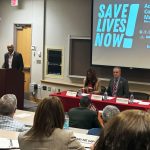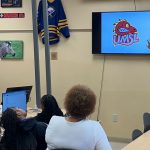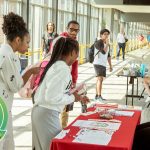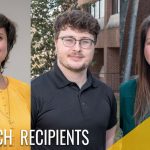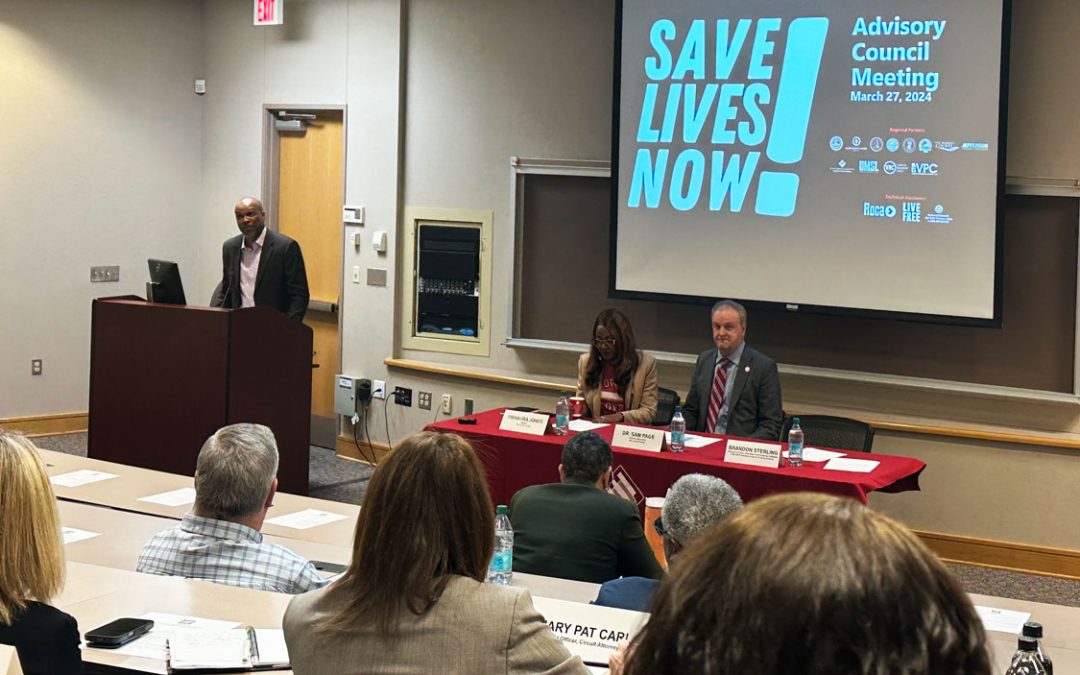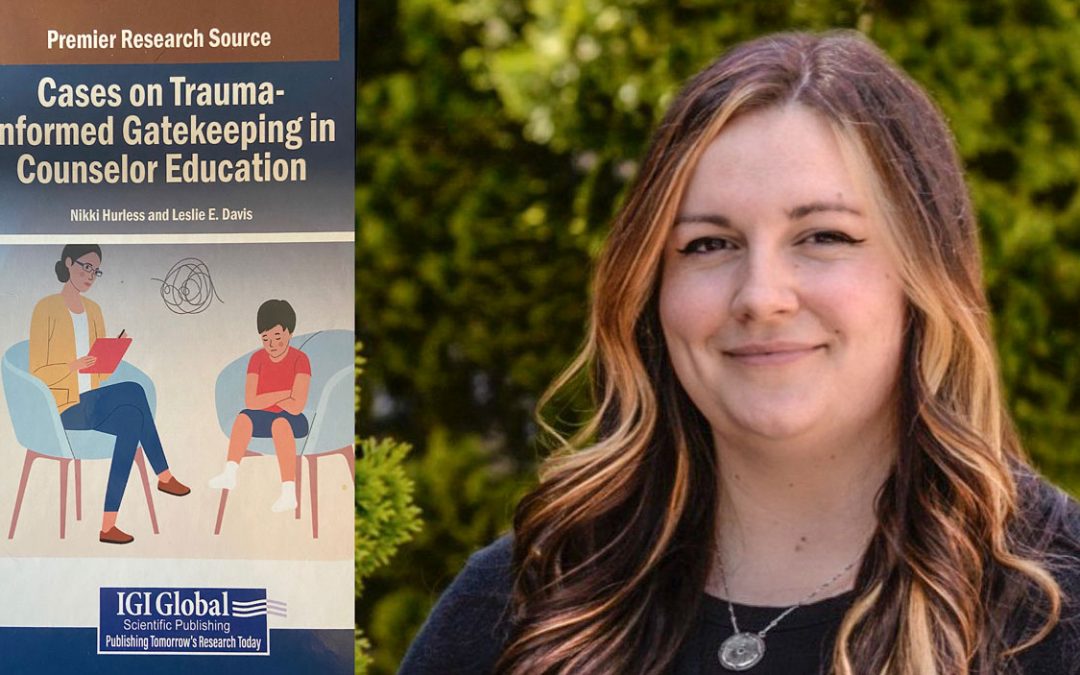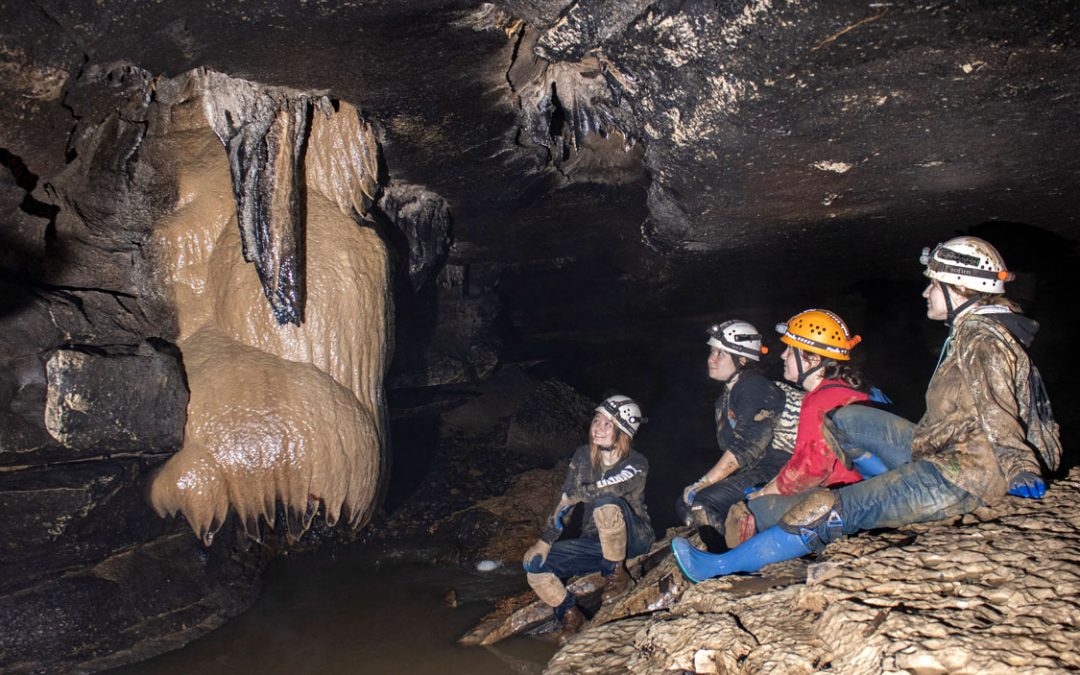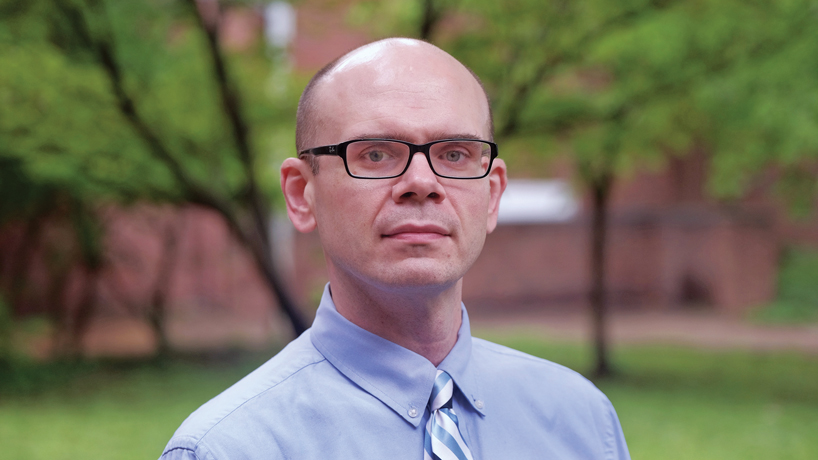
John Nanney, director of Community Psychological Service, has been instrumental in the program’s recent growth. (Photo by August Jennewein)
During his postdoctoral fellowship in New Orleans, John Nanney worked with gunshot victims at a level-one trauma center. He developed a program to offer psychological assessment and therapy to patients at risk of repeat injury due to violent confrontation.
“While the gunshot victims were in the hospital, we had a captive audience,” Nanney says. “So we used the opportunity to intervene with them, as they were at high risk of being shot again or shooting someone else.”
Since then, Nanney has joined the University of Missouri–St. Louis as director of Community Psychological Service, one of several psychological resources UMSL offers to the St. Louis community including the Center for Trauma Recovery, Children’s Advocacy Services of Greater St. Louis, the Missouri Institute of Mental Health and the Department of Psychological Sciences.
Founded in 1977 and based in Stadler Hall on UMSL’s campus, CPS uses a three-pronged approach to treating mental health concerns in areas that exhibit great need. The program trains future clinicians through a rigorous doctoral program, supports faculty who pursue cutting-edge psychological research and offers affordable, high-quality assessments and outpatient treatment to area residents.
What Nanney quickly found is that the St. Louis metropolitan area faces challenges and deficits in care similar to New Orleans.
“Constant exposure to violence, inequality and socioeconomic insecurity can cause or aggravate cases of depression, PTSD, anxiety, et cetera,” Nanney says. “When a person is confronted with feelings of hopelessness, it’s difficult for them to imagine living the American Dream. But psychotherapy offers concrete strategies to better cope with these adversities and live a more fulfilling life.
In 2012, CPS received a $4 million grant from St. Louis County Children’s Service Fund to provide psychological evaluations to children and adolescents. Within the first year of using those resources, CPS provided more than 900 area children with psychological evaluations, including testing for ADHD, body-image disorders and school difficulties.
According to Nanney, working with children and adolescents is essential to breaking negative family cycles.
“A lot of the time, people blame bad behavior solely on the child and say they’re a bad kid, but it’s really the social conditions they’re exposed to,” he says. “Our job is to provide solutions by considering the social and family context that in many ways determines the child’s behavior.”
Due to the UMSL program’s success and demand for services, CPS received further grant money and opened the Center for Behavioral Health in 2014. The new clinic, based in west St. Louis County, has proven extremely useful to residents who have difficulty obtaining transportation to north St. Louis County.
Josh Vinocour, assistant director of treatment services at the Center for Behavioral Health, attributes CPS’s progress to transparent processes.
“We generally share the results of the evaluation with the client,” Vinocour says. “A few weeks after the testing, we meet with them for an hour to say, ‘Here’s what we did, here’s why we did it, here are the conclusions and here are our recommendations.’ This assures that the patient takes an active role in his or her progress.”
In recent years, referrals to CPS have increased on average by 49 percent annually. In 2016, the service anticipates receiving around 4,000 referrals for psychological evaluations or psychotherapy.
“Our referrals come from community partners,” Vinocour says. “We’ve cultivated relationships with St. Louis County school districts, St. Louis County Family Courts and the Missouri Department of Social Services, among others. Our doctoral students organize health fairs for participating schools, and our professional clinicians will even meet families at court to conduct testing.”
The ever-growing efforts toward community outreach are what attracted UMSL doctoral student Caleb Pardue to the program.
“It allows me to explore seemingly abstract research interests and then apply that knowledge to helping people who, historically, might not have had access to services, which is both incredibly important and rewarding,” he says.
Nanney and the entire CPS faculty and staff work to develop clinical psychologists like Pardue to effect change in the climate and reach of psychological services nationwide.
“We need more mental health professionals in this country who are devoted to meeting the needs of the most underserved populations,” Nanney says.
Although the need for psychological services is immense, he keeps a positive outlook.
“Therapy can be slow, hard work, but most of our clients do get better,” Nanney says. “They learn how to better examine their thinking patterns and manage negative emotion. They gain a little more flexibility in their lives, and this allows them to see hope for a brighter future.”
This story was originally published in the fall 2015 issue of UMSL Magazine.



